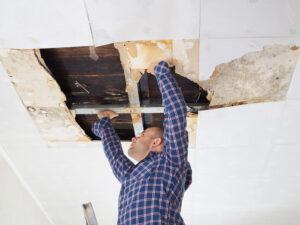The biggest concern of homeowners when renovating their home is making it an investment, but wanting it doesn’t mean it is the reality of what will happen. Despite their efforts, many homeowners still end up overcapitalising, feeling frustrated and regretful of the renovation they had. However, if you know the different renovations that lead to overcapitalisation, you can avoid a whole lot of debt and regret.
Renovation Examples That May Lead to Overcapitalisation
Overcapitalisation occurs when the money you’ve invested in your home renovation exceeds the value it adds to your property. It’s when you’ve spent a lot on your renovation, and you’re likely to miss a return on your investment.
Renovation examples to avoid:
Over-improving Your House
It’s easy to fall into the trap of making your house unique and having it stand out in your neighbourhood, especially if you are a new homeowner. Unless you are willing to overcapitalise for aesthetics and self-expression, keep in mind that your house’s value is generally based on location and other properties in the area.
If a time comes when you want to sell your home at the price you want, you will realise that potential buyers may not like houses with high-end finishes and features that are out of character with the rest of the neighbourhood. You will be forced to sell your home that is worth less than what you paid for it.
How to Avoid: Before renovating your house, research the value and architecture of the other properties in your neighbourhood. Make your renovation plans consistent with the neighbourhood’s overall character to ensure that you don’t over-improve your house and exceed the neighbourhood’s price range.
Too Much Personalisation
Over Customisation is another renovation example that many homeowners fall into. While there’s nothing wrong with renovating a house that suits your lifestyle, it’s one of the fastest tickets to overcapitalisation if you don’t research and disregard the possibility that future homebuyers won’t like the same features as you do.
Potential buyers may dislike your design choices which lower your house’s value.
How to Avoid: Research what homebuyers want in their house. Strike a balance between a layout that suits your lifestyle and one that’s likely to appeal to a broad range of potential buyers.
Overdesigning the Kitchen and Bathroom
The kitchen and bathroom are among the rooms home buyers consider when looking for a new home and the most tempting for current owners to over-customise.
How to Avoid: Focus on creating a functional and modern design. Make its design consistent with the overall style of your house while staying moderate with the finishes and features.
Adding Too Many Rooms
Adding rooms to your house can add value to your property, but extra space doesn’t. It’s one of the renovation examples that most potential buyers don’t like, especially if they are not functional or not adding any value to the home’s overall design. They may instead negatively affect the flow and functionality of the house.
How to Avoid: Before adding rooms to your house, consider whether the extra space is necessary and if it adds value to your property. If you decide to add rooms, ensure they’re functional and consistent with the other parts of your house.
Overspending on Landscaping
Landscaping can add to your property’s curb appeal. But if you’re not careful about the design and your expenditure, it will lower your property’s value.
How to Avoid: Research a generally appealing landscape, and not just something that looks good for you.
Consider the materials you use. Stay away from those that are too expensive. Although they may look good, only some are willing to pay a high amount for a luxurious landscape. Focus on creating an attractive and functional design without going overboard on your expenses.
Following the Trend
Following the latest home renovation trends can be tempting, but approach them cautiously. Trends come and go, and what’s popular now may not be in a few years. Trendy renovations can quickly become outdated and may not add long-term value to your home.
How to Avoid: While it’s okay to incorporate some trendy elements into your renovation, balance them with classic and timeless design choices that will stand the test of time. It ensures that your renovation will still look appealing when you sell your property.
How to Avoid Overcapitalisation
Based on the renovation examples mentioned, the following are the common ground of what you should do to avoid overcapitalisation:
Set a Realistic Budget
Before starting your renovation project, learn all the expenses involved, such as the materials and labour, and set aside an amount as a contingency fund. Having a ballpark figure of what you can realistically afford is the best way not to overspend because you know your price limits.
Research
Research the value of other properties in your neighbourhood before renovating your house. It also includes the design and layout.
Research on what most potential buyers want for a new home. Learn about the design and functionalities you can incorporate that you will also love.
Plan Ahead
Plan your renovation project ahead of time and stick to it as much as possible. It ensures you won’t be tempted with upgrades and upsells during the renovation and stay within the budget.
Hire a Professional
Consider hiring a professional to help you with your renovation project. A professional can provide valuable advice to help you avoid overspending on your renovation project.
Focus on Value-Adding Renovations
Focus on renovations that add value to your property, such as upgrading the kitchen and bathroom or adding extra living space. But be careful not to over-customise.
For more information, read “How Not to Overcapitalise on Renovations.”
Final Thoughts
Renovating your house is an exciting and rewarding experience, but overcapitalisation is not. By understanding renovation examples that may lead to overcapitalisation, you can renovate your property without breaking the bank and get the most out of your investment.
Set a realistic budget, do your research, plan ahead, hire a professional, and focus on value-adding renovations to avoid overcapitalisation and make the most out of your investment.
For your renovation needs, contact MKJ Projects now!








